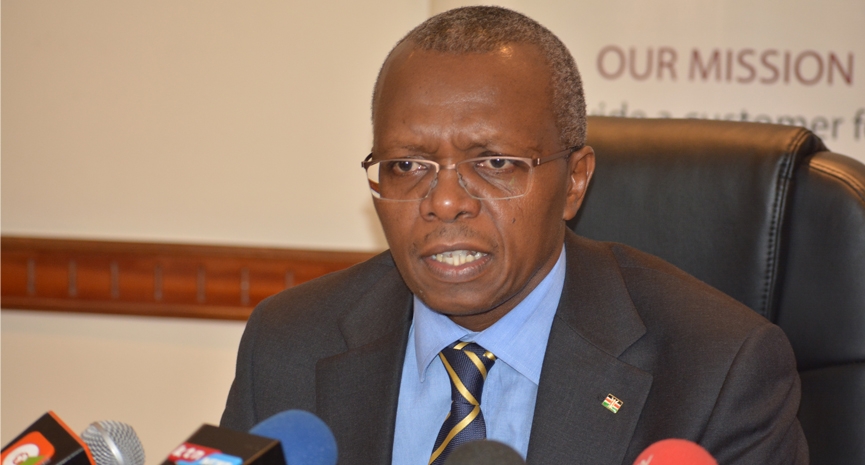Kenya Railways to commence freight operations on SGR from December 2017
Officially, Kenya Railways will start freight operations on the Standard Gauge Railway (SGR) from December 2017.

July 27, 2017: Officially, Kenya Railways will start freight operations on the Standard Gauge Railway (SGR) from December 2017. Meanwhile, Kenya Railways and the operator have dedicated a daily train for transportation of at least 100 containers of cereals per day from the Port of Mombasa (KPA) to Nairobi ICD via SGR. This is a joint working arrangement between the Government of Kenya, the Corporation and Grain Bulk Handlers Limited.
The development of the railway sector in Kenya continues even as the country seeks to achieve the medium to long term Vision 2030 goals. Kenya Railways (KR) also continues its contribution to infrastructure development and subsequent national development following completion of the first phase of SGR project and commissioning of the Madaraka Express service by President Uhuru Kenyatta on May 31, 2017.
The achievements of the Kenya Railways were highlighted in a press conference by the managing director, Atanas Maina. So far, the SGR has moved close to 38,000 tonnes of the government imported cereal. The SGR is carrying an average of 88 Twenty Foot containers and taking around 8 hours between Mombasa and Nairobi. The Corporation has received 18 more freight locomotives and 60 wagons designed for double-stacking on the SGR freight operations. This will go further in decongesting the Port of Mombasa as well as Mombasa Road.
The initial charges for containerised freight from the Port of Mombasa to the Inland Container Depot (ICD) in Nairobi or to Nairobi South freight exchange centre are set at $500 per TEU, which is equivalent to approximately KShs 50,000 per TEU. Bulk freight will be charged at 0.07 per tonne-kilometre. Minimum distance chargeable for cargo transportation is 200km.
For the phase two (2) of the SGR Project, Relocation Action Plan (RAP) is now complete, contractor mobilisation is currently ongoing in preparation for land acquisition and subsequent commencement of construction. Identification of financiers for Phase 2B (Naivasha Sub-county to Kisumu) of the SGR project is currently ongoing. It is expected that this second phase of the project will see more inclusion of locals as employees, given the expertise built on the first phase of the project. Graduates of the Railway Training Institute (RTI) programme have also been incorporated into the SGR operations in various capacities.
Technology transfer and training of local expertise will remain a key aspect of the project even in the remaining phases. The 40 percent local content will also be applied with an expected increase in number of local suppliers in various sectors.
Operations on the SRG line and Madaraka Express service between Mombasa and Nairobi are set to improve the overall efficiency of human and freight transport within the Northern Corridor.
The modern, high capacity Madaraka Express will carry up to 1,000,000 passengers per annum, increasing to 1,500,000 passengers per year by the third year of operations. The SGR will also run freight trains with each carrying 216 TEUs per trip and a trailing load of 4,000 tonnes on each train.
Construction of the Inland Container Depot (ICD) at Embakasi is in final stages. Currently, testing of ICD operations is ongoing via the food relief freight transportation and handling. The facility will soon be handed over by the China Road and Bridge Corporation (CRBC) to Kenya Railways for official commencement of cargo operations later this year. Upon full commencement of operations, the ICD will handle 405,000 TEUs per annum.
Madaraka Express operations started on schedule. The SGR operates both freight and passenger services; passenger service dubbed "Madaraka Express." Operations of the Intercity trains on the Madaraka Express service have been ongoing.


